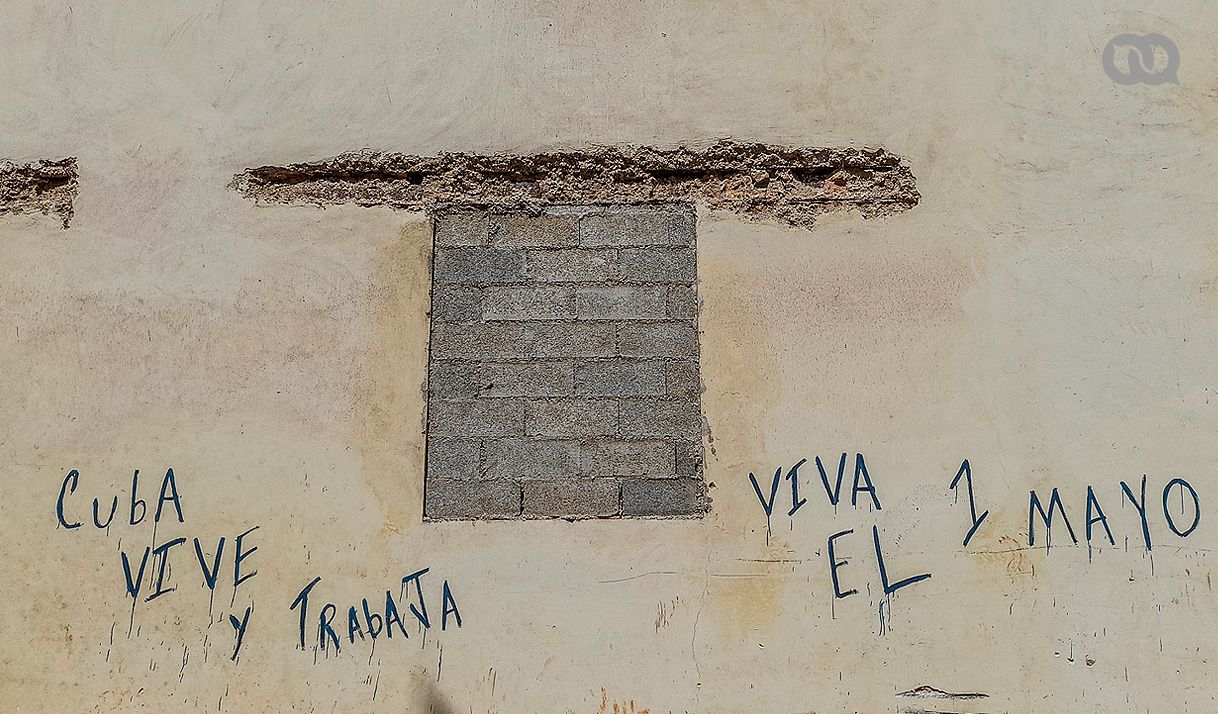The Cuban regime has become an exhaustive factory producing anti-Communists. While this is not news, the ability to produce head-on opposition members in every sector of society seems to be a recent phenomenon in the past few years, with ups and downs of course. This is not only happening within the exile community now settled in Miami but has also spread to other cities around the world. However, the most surprising thing about this is that anti-Communism is gaining ground in Cuba.
Opposition to Cuban Communism can take many shapes and discourses. Anti-Communism can be democratic, but it can also border on Fascism. However, regardless of which way anti-Communism leans, an overall rejection for the regime is becoming more and more clear.
During my latest trip to Cuba, I went to two cities to see friends and acquaintances and I found that their political views had changed substantially. I spoke to at least one person in Santa Clara who embraced the Libertarian movement that is booming in Latin America. I also found more conservative positions. But above all else I found that lots of people had become political. Peers who weren’t interested in politics at all, were now suddenly interested in talking about any issue.
This politicization I saw was marked by a deep rejection for the Government and its management of the economy. A precarious financial situation almost always popped up as a key component of my conversations with other people. The majority of my conversational partners touched on politics from the economic perspective, mainly; which definitely shouldn’t come as a surprise to anyone. The economic performance of any democratic government is one of the main factors that determines election results. Cubans can’t vote freely at the polls, but we do form our own opinions like everyone else.
The politicization I found in Cuba wasn’t always accompanied by a civic learning and personal liberty process. Moving from criticism to coming up with a plan, my conversational partners seemed to see their fates intertwined with the US Government’s or Communist Party’s will. They specifically thought about a new rapprochement between the countries, our Government miraculously opening doors to us or a military invasion as the only possible solutions to this Cuban tragedy.
Of course, characteristics of Cuba’s political system explain this attitude. At this point, almost every single one of us Cubans has been born or grown up under a paternalistic and totalitarian Government that decides for us or keeps us under its watchful eye if we decide to disagree with it. The absence of basic personal freedoms as well as the systematic dismantling of the social fabric by repressive forces has created individuals that don’t find the tools they need to have an impact on life in their neighborhoods, cities, provinces and country.
The public space is in another’s hands. “The hustle”, “resolving” or “finding a creative way” were never meant to deal with problems in the public space, but rather to provide some relief to individual or private matters. Public affairs shouldn’t be resolved by Cuban citizens, it’s the State’s or another foreign Administration’s business, as they are responsible or capable of providing a solution. This is a “natural” and practical response to a system that crushes civil society using repression and cooptation.
It’s important to understand that this attitude isn’t only due to precarious living conditions in Cuba. Even though it’s really hard to worry about less concrete problems such as freedom, independence of powers or public policies not having a direct impact on everyday life, when your basic needs aren’t being met. The above doesn’t mean to say that if essential problems such as food, clothes, health, and leisure are taken care of, these people will become more concerned about public affairs. At the end of the day, the more you have – no matter how small the improvement -, the more you have to lose. Regardless of the level of precarity or wellbeing, if you are persecuted, imprisoned or even killed for trying to have an impact on public life, it’s perfectly understandable that you’d “throw in the towel”, and use all of your efforts on improving your personal life. However, giving up on public affairs also contributes to the never-ending cycle of problems that affect everyone.
Stepping away from having an impact on public affairs means that the public space becomes a private asset. In other words, the totalitarian State is ironically turning the public square into a private domain. Moreover, “hustling” in the public space becomes a struggle to extract – directly or indirectly – public assets for personal reasons, most of the time. The public space has disappeared under totalitarianism, and mini “struggles” dominate to try and take a piece “home”. In other words, anti-Communism in Cuba today doesn’t have a real interest in public afffairs but is rather steered by uncertainty and hardship in people’s private lives.
“Privatizing” the public space also goes hand-in-hand with Cuba’s ideological struggle against totalitarianism and the Communist Party’s power becomes personal. In a landscape where almost nothing belongs to everyone, and where everyone wages their own “war” for survival, individual progress, and the progress of their loved ones, it’s unthinkable that you can depersonify something that is taking form every day. The communist on the block, the snitch, the fanatic, the corrupt minister, the stupid president and a despicable general become all too familiar faces for us to forget that the problem isn’t the Communist of the hour, but a political regime that is bigger than him, her and us. We need to go back to Marti’s maxim during the War of Independence; the Apostle explained that we were fighting against colonialism, not the Spanish.
The above isn’t me telling off those who live – or have once lived – in Cuba. I’m in no position to do so, and I don’t think anyone is. Nor am I trying to exonerate anyone of their fair share of blame if they are responsible. This article is just a brief reflection about Cuba’s problem from a civic viewpoint.
This article was translated into English from the original in Spanish.










comments
We moderate comments on this site. If you want to know more details, read our Privacy Policy
Your email address will not be published. Mandatory fields are marked with *